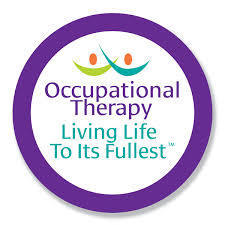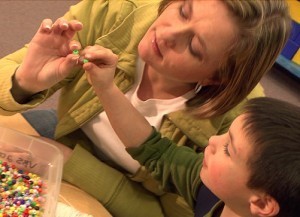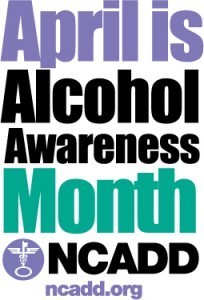Michael Cartwright's Blog, page 2
April 8, 2013
Occupational Therapy Month: Living Life To Its Fullest
 Occupational Therapy, also known as “OT”, is an applied science and health profession that provides the “skills for the job of living,” with the goal of creating more self-sufficient, independent patients. Occupational therapists and OT assistants treat any physical or mental problem that interferes with a person’s ability to perform activities of daily living (ADL), such as physical ailments and cognitive impairments.
Occupational Therapy, also known as “OT”, is an applied science and health profession that provides the “skills for the job of living,” with the goal of creating more self-sufficient, independent patients. Occupational therapists and OT assistants treat any physical or mental problem that interferes with a person’s ability to perform activities of daily living (ADL), such as physical ailments and cognitive impairments.
April is Occupational Therapy Month, with the theme of Living Life To Its Fullest - a month dedicated to spreading awareness about the field of Occupational Therapy, its team of professionals and the benefits of its helpful programs.
The American Occupational Therapy Association, Inc. says, ”…your holistic and customized approach to evaluations, interventions, and outcomes help a child with disabilities participate in school and in social situations, assist a person recovering from injuries to regain skills, aid an older adult to stay as independent as possible, and offer the specialized support and services to people of all ages and in all circumstances that only occupational therapy can provide. 
American Addiction Centers isn’t staffed with occupational therapists, but with substance abuse and mental health professionals who do very similar work – helping people in need improve their quality of life while overcoming physical, mental and emotional barriers. We are excited to promote the awesome OT industry and dedicated month ahead.
Are you, or do you know, an occupational therapist? Click here to learn how you can celebrate!
April 1, 2013
Alcohol Awareness Month
April means spring has sprung, and that Alcohol Awareness Month has begun! This year’s theme is ‘Help for Today. Hope for Tomorrow.’ As alcoholism continues to afflict millions of individuals and their loved ones, Alcohol Awareness Month is a national campaign dedicated to raising awareness and reducing the stigma attached to alcohol abuse and addiction.
Problem drinking can cause many more serious illnesses, including cardiovascular disease, cancer and liver disease – not to mention the emotional toll excessive drinking can take on individuals and their loved ones. Warning signs of alcohol abuse include:
▪ Flushed skin
▪ Drinking alone or in strange places/circumstances
▪ Blackouts
▪ Violent behavior
▪ Memory loss
Help for Today. Hope for Tomorrow.
This month, local and state events will work to educate people about treatment and alcoholism prevention. Schools also use this month to teach students about the dangers of underage drinking and other groups work to encourage families to get help and information. Join the cause, and check with local municipalities for events near you.
How will you celebrate Alcohol Awareness Month?
March 25, 2013
Focus On the Step Ahead
 The Behavioral Health team at FitRx recently shared with us some words of wisdom:
The Behavioral Health team at FitRx recently shared with us some words of wisdom:
When faced with the daunting task of change and growth, we often look at the picture of what we want to become and say, ‘There is no way I can get there.’ It is human nature to focus on the end result of what we want to be, instead of focusing on the step ahead of us.
One of the reasons we humans think this way is because often the struggle to change and grow can be grueling. If we focus on the reward, we keep our eye on the prize, we can hopefully garner enough motivation and hope to trudge through the labors that lie ahead. The problem with this thinking is that we delude ourselves to thinking that we don’t see the struggle ahead, when really we are more aware of it than we would ever care to admit.
When we learn to focus on the struggle rather than on the end result we actually end up gaining much more than we bargained for. It is in the struggle that we learn that change and growth are actually a natural part of the human experience. Like an acorn grows into a mighty oak without any concentrated effort on its part, people are designed to grow and develop. The true task for change and growth is to remove obstacles that hinder the natural process. When we are able to identify our own resistances, and the hurdles that are in our way, we can then put ourselves to the task of removing them.
Our task as humans is not to grow, but rather to clear the debris that keeps the natural process from happening.
March 18, 2013
Element In the Spotlight: Surround Yourself With Winners
 Louis Gossett Jr. is an Oscar-winning actor who battled drug addiction at the height of his career in the 1980′s. Now clean and sober, Louie opened up to me in my book, Believable Hope, about how the people in his life during his drug abuse only egged on bad habits and fueled his addictions – and this is very common.
Louis Gossett Jr. is an Oscar-winning actor who battled drug addiction at the height of his career in the 1980′s. Now clean and sober, Louie opened up to me in my book, Believable Hope, about how the people in his life during his drug abuse only egged on bad habits and fueled his addictions – and this is very common.
Essential Element #3 to beating any addiction is “Surround yourself with winners.” Surrounding yourself with positive influences is vital to beating addiction, and for those in recovery. Why?
Because we become like the people with whom we most frequently associate. This is true whether those people with whom we enjoy time are positive and productive people, or individuals burdened down by addictions and or other life controlling issues.
The saying, “Misery loves company” is certainly true. Not only does positive thinking contribute to lowered stress and an overall boost in health, but positive influences – people who lift you up, encourage healthy lifestyles and stay away from destructive habits themselves – can make the difference between sustained recovery and regular relapse. In other words, if you struggle with drug abuse and surround yourself with friends who abuse drugs, chances are you will continue to abuse drugs or return to old behaviors.
Here’s what it all comes down to:
If you want to get free from addictive behaviors, you must think differently and act differently.
If you want a life in recovery, don’t surround yourself with people who drink or do drugs. Similarly, if you want to lose weight, spend your time with people who overeat or regularly indulge in destructive behaviors.
Go to meetings where other people are fighting similar battles as you.
Find a sponsor, a mentor, someone who will share insights with you and be a role model for you, and hopefully help keep you accountable by encouraging you to stay on the right track.
Who are the ‘winners’ in your life?
March 4, 2013
Thank You, American Red Cross
 March is not only National Women’s History Month, but Red Cross Month, which dates back to 1943 when President Franklin D. Roosevelt named the first Red Cross Month in support of fundraising efforts led by the humanitarian organization in response to World War II.
March is not only National Women’s History Month, but Red Cross Month, which dates back to 1943 when President Franklin D. Roosevelt named the first Red Cross Month in support of fundraising efforts led by the humanitarian organization in response to World War II.
The American Red Cross provides disaster relief, education and emergency assistance, as well as outreach for the needy, 24/7 support services for military members and their families, safety training, international relief programs and so much more. The organization relies on time, money and blood donations in order to do its work – not the government.
This March, we celebrate the Red Cross in recognition of the support and services it provides to so many people. In the wake of Hurricane Sandy, for example, the Red Cross provided 1.6 million meals and snacks, and 23,900 emotional support and health contacts. The American Red Cross responds to nearly 70,000 disasters every year.
The American Red Cross says, “Your generosity helps provide life-changing and often lifesaving services down the street, across the country and around the world. Show your support during Red Cross Month because moments of hope are made possible by people like you.”
Visit redcross.org to learn how you can join in the cause.
March Is Women’s History Month

In 1978, hundreds of Sonoma, CA students participated in “Real Woman” essay contests and celebrated with parades. Little by little, communities and organizations across the country were doing the same. Then in 1980, President Jimmy Carter declared the week of March 8 as National Women’s History Week, and Congress passed established it as a national celebration that expanded the entire month of March, thanks to the efforts of the National Women’s History Project.
To celebrate, here are just a few of the amazing women who’ve made history in the fields of healthcare, addiction and mental health:
Betty Ford (1918 – 2011)
Beloved former first lady Betty Ford opened up about and subsequently helped decrease the stigma attached to drug addiction. By overcoming alcohol and painkiller addiction, Betty served as a symbol of hope for effective addiction treatment. In the 80′s, she co-founded the infamous Betty Ford Center in Rancho Mirage, CA. Betty raised millions of dollars for the center, which has treated more than 90,000 people.
Virginia Avenel Henderson (1897 – 1996)
Virginia Avenel Henderson changed the field of nursing when she developed the theory that nurses should aid everyone in the quest for better overall health. Known as the First Lady of Nursing, Virginia graduated from the Army School of Nursing and earned her MA in Nursing Education from Columbia University.
Nancy Reagan
“Just Say No” is a saying coined by this former First Lady, and the basis for her pro-eduction, anti-drug campaign of the ’80s. By traveling the world and appearing on popular TV shows and in music videos, Nancy spread her message to young people and encouraged parents to speak with their children and teens about peer pressure and the dangers of drug use.
Harriet Shetler (1917 – 2010)
In 1979, Harriet founded the National Alliance on Mental Illness (NAMI), a national advocacy group controlled by parents and relatives of the mentally ill, which operates in more than 1,100 communities across the country. NAMI aims to change the stigma attached to mental illness while working to provide better opportunities for those battling mental illnesses.
The theme of this year’s Women’s History Month is Women Inspiring Innovation Through Imagination: Celebrating Women in Science, Technology, Engineering and Mathematics.
Who are the inspiring, innovative women in your life?
February 25, 2013
Find Hope on Self-Injury Awareness Day

This Friday, March 1 is National Self-Injury Awareness Day (SIAD) – a day dedicated to education and awareness surrounding those who self-harm or self-mutilate. All over the country, orange ribbons will be worn to represent hope for this problem riddled with stigma.
To self-injure means to intentionally and voluntarily harming oneself by burning, cutting, poisoning, hair-pulling or bruising oneself, among other harmful ways, or even picking at wounds with the intention to cause harm or pain. Self-injury behavior can persist and worsen over long periods of time.
Because so many people who self-harm themselves go untreated or unspoken, due to the shame, guilt and embarrassment surrounding this condition, we don’t know exact numbers – but according to Mental Health America, nearly two million people in the U.S. self-injure.
Many of those who self-inflict harm or pain are trying to escape from and cope with emotional issues buried underneath the surface. Anxiety, stress, depression, pressure, trauma and self-hatred are all causes of self-injury. Warning signs of self-injury include unexplained cuts, scratches, bruises or other signs of physical harm, self-criticism, restlessness, increased substance use and sudden behavior/mood changes.
SIAD is a time when awareness organizations increase their outreach efforts with community events or fundraisers. Others wear their orange ribbons in support, write “LOVE” on their bodies – and some may even choose to open up about their own self-injury. LifeSIGNS says, “By raising awareness our intention is to change how people react to self-injury, by educating them about the truths and by banishing the myths. We intend for people, even if they are unable to fully understand self-injury, to at least be able to empathise with people who hurt themselves in order to cope with emotional distress.
Self-injury can be addicting, but help and hope are available now.
February 18, 2013
Campers Raise Recovery Awareness – In An Igloo?!
 The Northeast has been feeling the brunt of the winter season – the town, of Bangor, Maine being one of them. And while the residents of Bangor hunkered down for yet another snowstorm this past weekend, four of them spent the weekend freezing in an igloo for 3,000 minutes. That’s 50 hours. Why on earth would they do that?
The Northeast has been feeling the brunt of the winter season – the town, of Bangor, Maine being one of them. And while the residents of Bangor hunkered down for yet another snowstorm this past weekend, four of them spent the weekend freezing in an igloo for 3,000 minutes. That’s 50 hours. Why on earth would they do that?
For a project called 3,000 Miles for Recovery. Those 3,000 minutes represented the 3,000 miles the members – who are in recovery themselves – plan to hike this spring (from Bangor to Phoenix) to raise money and awareness for addiction recovery and recovery options, to organizations and people they meet along the way.
H. Blake Manz is the organizer of 3,000 Miles for Recovery. He says, “It’s real common to hear people’s struggles with drugs and alcohol in a negative light… we wanted to get the message across that there is recovery. There is another side to it. People every single day live, I think, a productive life.”
Zachary Winship is a member of 3,000 Miles: “One of the things they teach you when you’re doing recovery is to pass the message along and that will actually help keep you sober. Seeing these people come in with nothing, no hope, and seeing them a couple months later going out and getting a job, starting work, bringing their family back together it’s amazing to see.”
Fellow member Jody Forrest says, “That’s what we are trying to bring back to the community. It’s not only productive people, but families. It brings families back together when people are recovering.”
The hike will take about 126 days; what an incredible story of believable hope.
Visit the group’s Facebook page to stay connected with these brave, inspiring souls.
Source: WLBZ2 News
February 11, 2013
Story of Hope: Recovery Is A Process
 A Wyoming news channel recently reported on Bekah Deahl, a woman with a very powerful recovery story of believable hope.
A Wyoming news channel recently reported on Bekah Deahl, a woman with a very powerful recovery story of believable hope.
In its article entitled, “Recovering drug addict shares story of struggle, hope,” we learn that as an adolescent, Bekah struggled with her weight and poor self-esteem – which led to an eating disorder throughout college – which, in turn, led to an unexpected addiction to pills throughout her adulthood.
After giving birth to her daughter, Bekah became clean until she was prescribed painkillers for medical issues. The pill abuse opened the door to cocaine addiction before she made several attempts at rehabilitation to no avail.
In July of 2011, Bekah overdosed. The following month, she was in a serious car accident. Nothing could stop her failed attempts at breaking the cycle of drug abuse, detox, rehab and back to drug abuse again. She said, “I had turned into a person I didn’t know, they didn’t know. I was stealing from people, stealing from people I had known for years and that loved me. Stealing from my parents, I was taking my dad’s pain medication.”
Bekah has now been in faith-based treatment for five months, with one more month to go – and she is doing an amazing, ready to focus on repairing her relationships with family and loved ones. She now “looks to a higher power for the courage to make sure this time is different.”
Bekah says, ”I left my life a mess, and I am going to have to put it together.”
In the process of developing believable hope, beware of setting unrealistic goals. For example, some people want to lose fifty pounds in a week, and that simply isn’t going to happen. The change has to be incremental, with a workable plan, and progressive results to become permanent.
Source: WYMT TV
January 4, 2013
Ex-Synthetic Drug User Rallies for Change
 Synthetic drugs like Spice and bath salts are slowly becoming outlawed – but that hasn’t stopped people from abusing them, and manufacturers from coming up with new formulas in order to skirt the law.
Synthetic drugs like Spice and bath salts are slowly becoming outlawed – but that hasn’t stopped people from abusing them, and manufacturers from coming up with new formulas in order to skirt the law.
For more than three years, North Carolina resident Brandon Cox was addicted to the synthetic marijuana he bought at gas stations – legally. Brandon is now clean and sober, and rallying to remove these drugs from stores. He told Fox News, ‘I’ve done a lot of drugs, out of all of them this has been the most intense, unhealthy addictive drug,’ said Cox.”
Brandon said he would spend $100 every day on 10 to 15 grams in order to maintain his high and often stole money from his family. One day, he decided enough was enough. Today, Brandon works with law enforcement and local politicians to get the chemicals in synthetic drugs outlawed in all 50 states.
Law enforcement has recently been responding to calls related to a legal synthetic sold in stores called ”Bizarro.” This new drug is now popular among teens and meth users who can’t afford their normal fix.
Source: Fox News




